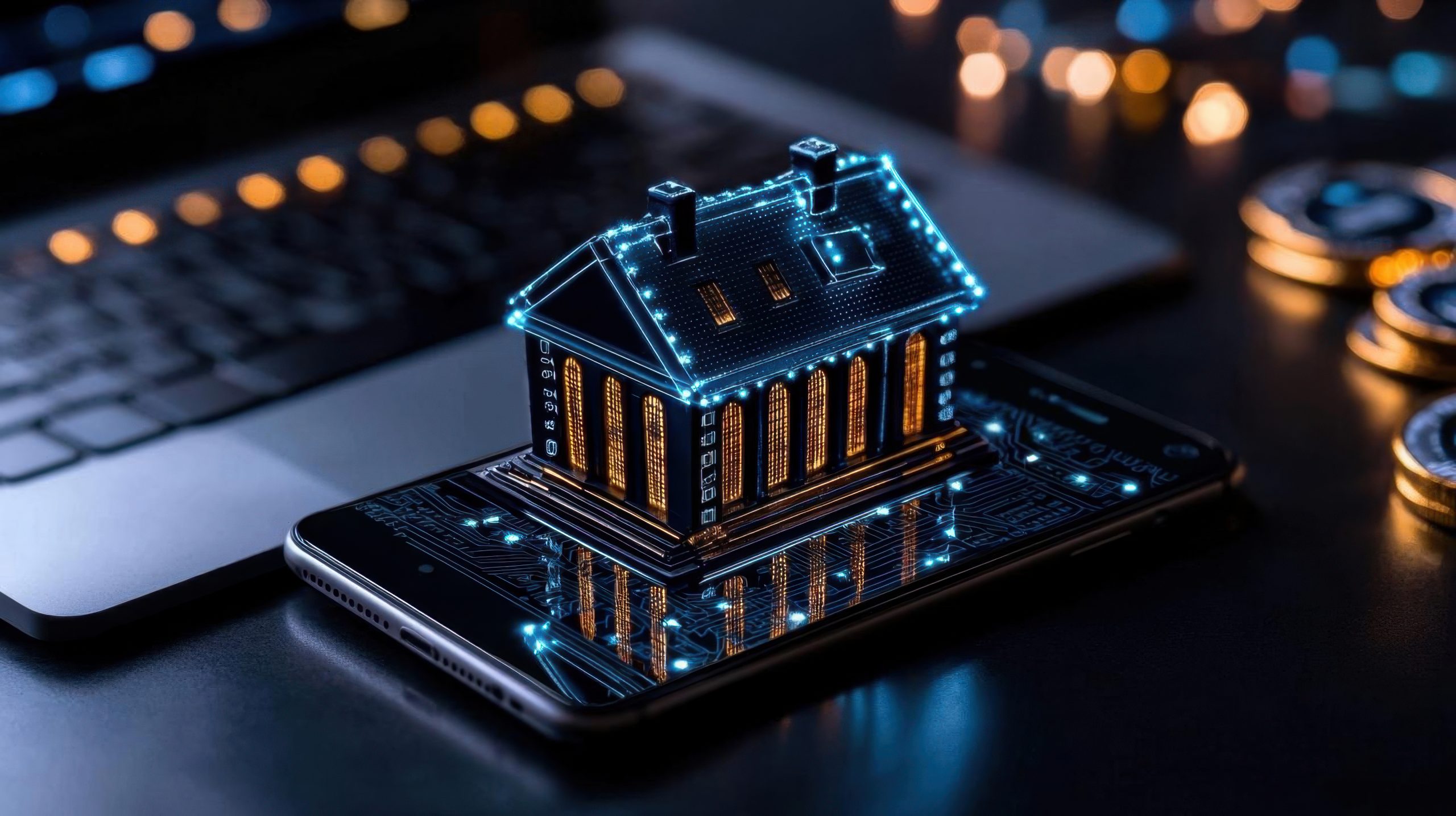The real estate investment market is changing rapidly under the influence of digital technologies. One of the most exciting trends here is the tokenisation of real estate. Unlike the traditional model with its well-known barriers, high entry costs, low liquidity, and limited access, tokenisation offers a new approach and new opportunities.
Tokenization allows you to digitise real estate rights, presenting them in the form of tokens on the blockchain. This will enable investors to buy, sell and exchange shares of real estate with high speed and flexibility. Thus, the very idea of asset ownership, partial investments and global market availability is changing.
For developers, owners and investors, tokenised assets become a way to attract additional capital and expand the range of project participants. Regardless of whether you are considering new financing models or planning a large-scale development project, understanding tokenisation mechanisms becomes strategically important.
In this post, we learn the basics of real estate tokenisation, how it changes the market, and take a closer look at the platforms that are already building the future of real estate investments.
What Is Real Estate Tokenization?
Real estate tokenization is the process of dividing a property into digital shares called tokens, that represent fractional ownership of the asset. These tokens are then issued and traded on a blockchain-based real estate tokenization platform, enabling efficient, secure, and transparent transactions.
In simple terms, to tokenize real estate is to transform ownership rights of a property into multiple digital tokens. Each token reflects a portion of the property’s value and can be held, sold, or traded just like stocks or cryptocurrencies.
Imagine a commercial building worth $10 million. Through real estate tokenization, the property is split into 1,000,000 tokens. An investor can buy just $1,000 worth of tokens, gaining exposure to the same returns and appreciation as a traditional property owner, without the need for large upfront capital.
Real estate tokenization projects are gaining traction across residential, commercial, and mixed-use developments, offering new financial models for developers and investors alike.
Traditional Real Estate vs Tokenized Real Estate
Investments in real estate are traditionally considered reliable, but they are often associated with slow processes, high costs and require significant capital. Each transaction passes through many intermediaries, is accompanied by a mountain of paperwork, and takes a long time. In addition, local buyers usually limit access to such investments, and it can be not easy to sell an object sometimes it takes months.
In contrast, tokenized real estate leverages blockchain technology to streamline ownership and investment. By issuing digital tokens backed by real assets, it enables fractional ownership, rapid transfers, and borderless access to real estate markets.
Key differences include:
- Accessibility: now almost anyone can invest in real estate, even with a small budget.
- Liquidity: tokens can be sold and bought in the tokenised real estate market around the clock, without delays.
- Transparency: blockchain creates a protected and transparent record of ownership, inaccessible to outsiders.
As real estate tokenisation becomes more popular, it changes the approach of investors to owning assets and creating their value.
How Does Tokenization in Real Estate Work?
Tokenization of real estate turns rights to physical objects into digital tokens on the blockchain. Each token is a part of the property, allowing investors to acquire real estate in small, managed shares. This is how the stability of traditional assets is combined with the convenience and speed of digital financial instruments.
Using blockchain technology, tokenized real estate platforms create secure, transparent, and automated systems that eliminate many of the inefficiencies tied to traditional real estate investing. From legal structuring to income distribution, everything is executed through smart contracts, reducing costs and increasing trust.
There are multiple models used by tokenized real estate companies, each tailored to different investment goals and asset strategies. Let’s break down the five most common types of real estate tokenization structures and how they work.
1. What Is Simple Tokenized Real Estate?
Simple tokenized real estate is the most straightforward application of property tokenization. A legal entity holds the property, and issues digital tokens representing direct equity in that asset. These tokens are distributed to investors via a tokenized real estate platform.
How it works:
- A registered entity legally owns the property.
- That entity creates and issues tokens that represent proportional ownership stakes.
- Investors who hold these tokens are entitled to returns, such as rental income or capital appreciation.
This model is commonly used by tokenized real estate companies looking to raise capital quickly by offering fractional ownership to a wide pool of global investors.
2. What Is Dynamic Tokenized Real Estate?
In tokenised real estate, property tokens can be programmed using smart contracts. This transforms them from ordinary shares into flexible assets that provide, for example, short-term lease rights or special services that depend on the time or role of the owner.
Key features:
- Smart contracts automate every transaction, reducing human error.
- Usage rights—such as access, rental periods, or resale terms are embedded in each token.
- Investors or users can manage their assets in real-time via the tokenized real estate platform.
Why it matters: This model supports creative investment structures like token-based co-living spaces, seasonal property access, or even decentralized property governance. It’s popular among tokenized real estate marketplaces that prioritize flexible usage and community-led management.
3. What Is Fractionalized Real Estate?
Fractional real estate makes asset tokenisation particularly accessible and scalable. Expensive objects are divided into thousands or even millions of digital tokens, which investors can purchase and sell separately, opening up new investment opportunities.
Benefits:
- Lower investment thresholds open the market to retail investors.
- Investors can easily buy tokenized real estate to diversify portfolios.
- Offers premium access to blue-chip properties once reserved for large institutions.
Example: A luxury hotel worth €10 million is divided into 1,000,000 tokens. Investors can purchase as little as €50 worth of tokens and still gain access to rental revenue and asset appreciation through the tokenized real estate platform.
Fractionalized real estate is foundational for most tokenized real estate companies operating in global markets.
4. What Are Tokenized Real Estate Cash Flows?
Instead of tokenizing the asset itself, some real estate tokenization companies tokenize the income generated by the property, such as monthly rent, dividends, or profit shares. This model provides exposure to returns without requiring asset ownership.
Mechanics:
- Tokens are tied to the share of expected future income from the property.
- Income is distributed automatically using smart contracts on the blockchain.
- Income tokens can be freely bought, sold or exchanged on the tokenised real estate market.
Advantages:
- Passive income with minimal effort.
- Transparent revenue tracking with immutable blockchain records.
- Ideal for investors focused on yield rather than capital gains.
Cash flow tokenization is growing in popularity among platforms focused on real estate tokenization using blockchain technology, especially those offering recurring income streams.
5. What Are Tokenized Real Estate Baskets?
A tokenised real estate basket is a curatorial portfolio of objects combined into one investment token. This approach provides built-in diversification by regions, asset classes and investment strategies.
Structure:
- One token reflects a share in the totality of several real estate objects.
- Profitability is based on the overall efficiency of the portfolio.
- Access is carried out through specialised tokenised real estate platforms.
Why it works:
- Reducing risks by allocating capital among different assets.
- Attracting passive investors who are looking for diversification without the need for self-management.
- Accelerated capital deployment in various segments of the real estate market.
Real estate tokenization using blockchain technology is transforming the way we invest in and manage property. By enabling fractional ownership, programmable rights, and blockchain-secured income distribution, tokenized real estate companies are opening new possibilities for both developers and investors.
Key Benefits of Real Estate Tokenization
Tokenization of real assets is not just a fashion trend, but a real shift in the way we buy, sell and manage real estate. It makes investments more accessible, increases security and opens up opportunities for process automation, bringing tangible benefits to investors, developers and financial institutions.
Let’s talk about the key advantages of tokenised real estate, focussing on real results and investors’ interests.
1. Liquidity: Turning Static Assets into Tradable Units
One of the main problems of traditional real estate has always been liquidity. It can be difficult to sell an object: transactions stretch for months, are accompanied by legal formalities and require significant upfront investments.
The situation is changing with tokenised real estate. Ownership is divided into digital tokens, which can be traded almost instantly on blockchain platforms, making the process more flexible and accessible to investors.
Why it matters:
- Investors can buy and sell real estate tokens quickly without waiting for a full asset sale.
- Shortens the holding period, which increases portfolio agility.
- Creates an exit strategy for investors who traditionally had to wait years.
By tokenizing real estate ownership, markets become more dynamic and responsive to demand.
2. Price: Lower Entry Barriers and Fractional Investment
Traditional real estate often demands significant capital to get started. Real asset tokenization breaks this barrier by enabling fractional ownership.
Key benefits:
- Investors can start with as little as €100, depending on the asset.
- High-value properties become accessible to smaller players.
- Developers can raise capital faster by selling tokenized shares instead of full properties.
This pricing model simplifies the entry of private investors into the field of tokenised real estate, eliminating the need for complex legal schemes and intermediary services.
3. Minimizing Fraud: Immutable Records and Audit Trails
There are still serious problems in the global real estate market – fraud, property disputes and opacity of transactions. Tokenization allows you to solve these problems: each transaction is recorded in the unchanged blockchain registry, providing a transparent and verifiable record of actions.
Key security features:
- Confirmed digital ownership;
- Records protected from forgery;
- Automated KYC/AML processes based on smart contracts.
Thanks to this approach, investors and owners get a higher level of protection, transparency and trust in transactions. Tokenization of real estate minimises the risks of fraud, property conflicts and legal errors.
4. Transparency: Real-Time Access to Data
In traditional real estate, it isn’t easy to track the movement of the asset, sources of income and ownership structure. Tokenization solves this problem by providing transparency and access to data in real time via the blockchain.
Key benefits of transparency:
- Verification of ownership structure and transaction history.
- Instant access to data on rental income, maintenance and occupancy of facilities.
- Integration with smart contracts for dynamic display of asset indicators.
Thanks to this, the tokenisation of real assets strengthens investor confidence and provides operational clarity for all market participants.
5. Automation: Smart Contracts Simplify Processes
Smart contracts are a cornerstone of real estate tokenization. They eliminate the need for intermediaries such as brokers, legal consultants, or banks in many processes.
Automated benefits include:
- Auto-execution of rental income distribution.
- Instant ownership transfer.
- Automated compliance, reporting, and dividends.
Through tokenized real estate investment, automation reduces costs and human error while accelerating transaction speed.
6. Broader Access: Democratizing Real Estate Investment
Tokenization opens up new horizons for investors, eliminating both geographical and financial restrictions. Today, individuals from all over the world can invest in tokenised real estate directly from their smartphones.
This gives a number of key advantages:
- Involvement of retail investors previously deprived of access to large facilities.
- Global coverage and round-the-clock access to real estate markets.
- Simple diversification of investments by different asset classes and countries.
As a result, real estate turns into a flexible and unlimited investment tool, available to anyone who wants to participate in this market.
7. Security: Blockchain Protection for Real Estate Assets
When working with high-value assets, investor and data protection is of paramount importance. Tokenised real estate platforms integrate blockchain encryption and decentralised verification mechanisms, providing a reliable level of security.
Main advantages:
- Each token is legally assigned to a specific asset or company.
- Blockchain technology eliminates the risk of unauthorised access, forgery or loss of data.
- The infrastructure complies with international standards for data and asset protection.
As more investors seek secure, low-friction asset exposure, real estate asset tokenization offers a compelling value proposition.

Regulatory Landscape for Real Estate Tokenization
Regulation of tokenisation of real assets is still at the stage of formation. Although the technology increases the transparency and efficiency of transactions, the ownership of tokenised real estate must comply with financial legislation, securities rules and cross-border requirements.
Today, tokenisation companies often use special legal structures – SPV or trusts. In different jurisdictions, tokens are classified differently: as securities, property shares or utility rights, which directly affects licensing and taxation. As regulators gradually adapt to innovations, clear guidelines will be key to the widespread adoption of commercial real estate tokenisation and related NFT models.
Risks of Real Estate Tokenization
Although real estate tokenisation opens up significant opportunities, it also carries its risks, which are important for both investors and developers to take into account. From legal audit issues to tax consequences, successful movement in this space requires a thoughtful approach, careful planning and careful evaluation of each step.
1. Verification and Ownership Clarity
Digital tokens must be tied to verified legal structures.
Risk: If the tokens are not associated with a legal title or SPV, they may be invalid.
Solution: Use legally binding smart contracts and audit assets to verify the tokenisation structure.
2. Limited Access to Qualified Platforms
Most tokenised assets are traded on niche platforms with limited liquidity.
Risk: Investors may find it difficult to buy or resell tokens.
Solution: Work with proven platforms that have a growing user base and comply with regulatory requirements.
3. Implementation Barriers and Technical Complexity
Tokenization projects require reliable infrastructure, legal coordination and blockchain integration.
Risk: Implementation errors can cause vulnerabilities or failures.
Solution: Cooperate with blockchain experts, developers and lawyers to ensure the correct operation of the system.
4. Regulatory Uncertainty Across Jurisdictions
The rules vary from country to country and may affect the classification of tokens and investors’ rights.
Risk: Cross-border investments may face restrictions or regulatory control.
Solution: Conduct a detailed jurisdictional study and work with platforms that comply with strict compliance protocols.
5. Taxation and Reporting Issues
Tokenization of real estate rights imposes new requirements for taxation. Depending on the type of tokens, investors may face capital gains tax, income tax or cross-border reporting obligations.
Risk: There may be unexpected tax consequences, including capital gains or cross-border taxation.
Solution: Consult with tax specialists familiar with investments in tokenised real estate and blockchain assets.
Tokenization of commercial real estate opens up new opportunities for investors, but carries certain risks. Understanding the issues of asset verification, access to platforms, technical implementation, regulation and taxation allows you to make more balanced and strategic decisions.
If you plan to participate in a real estate tokenisation project, work only with proven platforms and evaluate all legal, financial and technical aspects in advance so that investments are safe and effective.
What to Consider Before Entering the Tokenized Real Estate Market
The world of real estate tokenisation opens up new opportunities, but requires a strategic approach. Before tokenising land or investing in tokenised REIT, it is important to consider several key factors:
- Legal framework: the rules vary depending on the jurisdiction. In some countries, the ownership of real estate through blockchain is recognised, in others the status of NFT and tokenised shares is still being specified.
- Investment strategy: define your goals – long-term income, short-term transactions or participation in diversified tokenised real estate funds. The choice of platform and investment structure depends on this.
- Liquidity expectations: although tokenised assets usually provide greater flexibility than traditional real estate, liquidity may not be instantaneous. Some commercial tokens require retention for a certain period.
- Technological readiness: understanding of blockchain and the operation of smart contracts, digital wallets and tokenisation protocols is necessary for confident asset management and risk minimisation.
- Due Diligence: not all platforms offer equal transparency. Scrutinize every real estate tokenization project for asset documentation, investor rights, and exit options.
Entering the market without a well-thought-out strategy can result in unexpected operational or financial difficulties. To truly take advantage of commercial real estate tokenisation, it is important to coordinate your investment goals with appropriate technological solutions in advance.
Choosing Between Ready-Made vs Custom Implementation
When launching a tokenised real estate fund, it is critical to choose a suitable implementation strategy. Two main ways – the use of ready-made platforms or the development of an individual solution are focussed on different goals and requirements of investors, offering unique advantages depending on the scale and complexity of the project.
Ready-Made Platforms:
- Pre-customised solutions with smart contract templates, legal tools and dashboards.
- Ideal for those who want to enter the market and reduce development costs quickly.
- Often used for fractional investments or tokenised REIT.
Custom Implementations:
- Allows you to adapt the platform to unique assets, such as land or commercial buildings.
- Provide full control over compliance, branding and logic of the platform.
- Ideal for enterprises looking to scale NFT in real estate applications or integrate with proprietary systems
Ready-made solutions allow you to enter the market quickly, but can limit flexibility and control. Individual implementations require more resources, but ensure full compliance with the type of asset, regulatory requirements and investor expectations. Choosing an approach is a key factor for long-term success in real estate tokenisation.
Top 5 Real Estate Tokenization Companies in 2025
The tokenization of real estate is revolutionizing how property assets are owned, traded, and managed. By using blockchain to tokenize real estate, investors can access fractional ownership, streamline transactions, and unlock liquidity. Here are five leading real estate tokenization companies in 2025, from major players to agile innovators.
1. 22 Software Development
22 Software Development is rapidly becoming a top provider in the asset tokenization real estate space. Offering full-stack blockchain development, the company specializes in creating custom real estate tokenization blockchain solutions, including smart contracts, investor dashboards, and compliance integrations. 22 Software Development solutions are ideal for launching tokenized real estate funds, tokenizing commercial objects, or creating NFTs as part of development projects. 22 Software Development stands out for its flexibility and efficiency, helping customers unlock the potential of tokenisation in both the residential and commercial market segments.
2. RealT
RealT in the field of real estate tokenisation through NFT provides international investors with the opportunity to acquire shares in rental objects in the United States in token format. Each token secures part of the ownership and provides a stable daily rental income. The platform demonstrates how blockchain technologies increase the transparency of real estate ownership and simplify cross-border investments.
3. Blocksquare
Blocksquare delivers modular technology to tokenize land, commercial buildings, and more. Its white-label infrastructure empowers real estate companies to launch their own tokenized real estate crypto platforms. As a B2B-focused provider, Blocksquare facilitates regulatory compliance and scalability, ideal for launching tokenized REITs or tokenized real estate funds.
4. DigiShares
DigiShares real estate solutions are built for enterprises aiming to issue and manage tokenized securities. With features for investor onboarding, KYC/AML, and dividends, DigiShares is a favorite for firms seeking to tokenize commercial real estate at scale. It also supports the secondary trading of tokenized assets, adding liquidity to an otherwise illiquid market.
5. Metlabs
Metlabs offers legal-first tokenization services with an emphasis on tokenized real estate compliance across Europe and the Middle East. Whether launching an NFT real estate asset or a tokenized ownership project, Metlabs provides the tools to bring real estate to the blockchain in a secure and compliant manner.
From tokenized REITs to real estate NFT tokenization, these companies are shaping the future of property investment. As blockchain transforms how we invest in and manage property, tokenization is the future of real estate investment and these firms are leading the charge.
The Future of Real Estate Tokenization
Real estate tokenization is transforming how investors access, trade, and manage property assets and the future looks even more disruptive. What’s next for tokenized real estate?
- Regulatory evolution: Clearer legal guidelines will attract more institutional players and reduce compliance risks for smaller investors.
- Integration with DeFi: The emergence of decentralized finance will unlock liquidity for token holders, allowing them to stake or lend their tokens across real estate tokenization platforms.
- Global access: Geographic barriers are fading. Investors can tokenize land in one country and trade it globally with minimal friction.
Modern practice actively uses a dedicated phone as a mobile cold wallet. Such a device remains completely turned off and disconnected from the network until the funds are transferred, after which it is briefly connected to make a transaction. This approach combines the convenience of mobile access with the high degree of security inherent in cold wallets, giving users maximum control over assets without compromise on protection.
Conclusion
With the development of blockchain technologies and the improvement of legal regulation, the tokenisation of real estate is gradually changing the face of world markets. This innovative approach allows you to split expensive objects into digital tokens, opening up the possibility of partial ownership for investors. As a result, there is access to commercial real estate, rental objects, and land plots with increased transparency, accelerated transactions, and minimisation of the number of intermediaries. Tokenization not only simplifies the investment process, but also makes it more flexible and accessible to a wide range of market participants.
It is critical for investors and developers today to assess how tokenisation can optimise portfolio management. From working with land plots to secure management of digital assets, tools are already available, and the possibilities of their application continue to expand.
Companies ready to integrate tokenisation can significantly increase the liquidity and manageability of their assets. It is recommended to start by analysing reliable platforms and consulting with experts to convert traditional objects into digital assets effectively.




